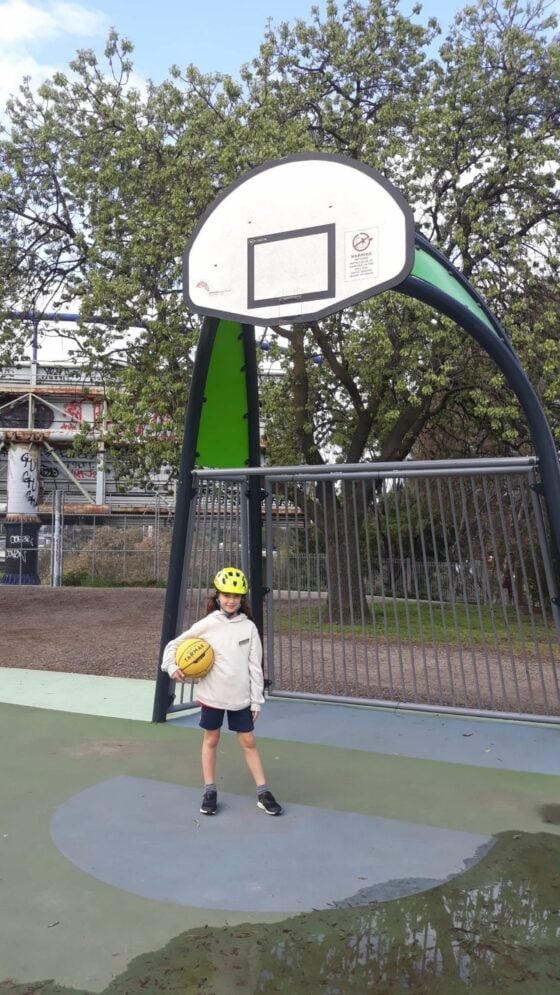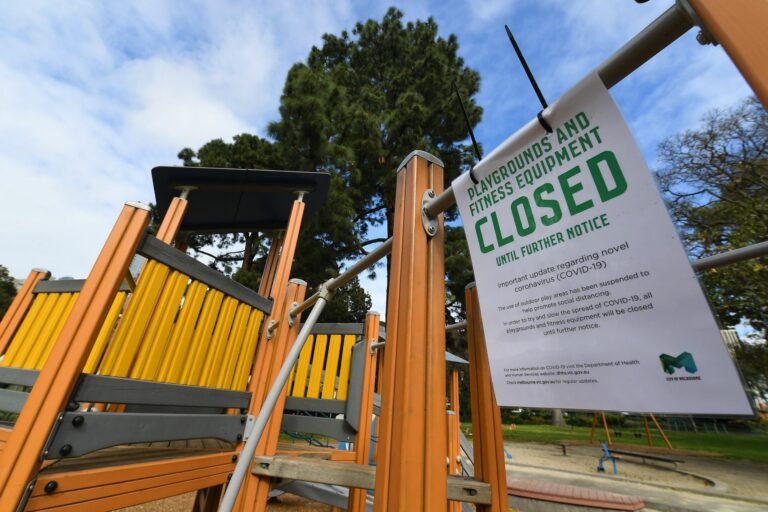Many parents are expressing concern for the mental health of their children, especially in Victoria and New South Wales where lockdowns are continuing indefinitely so as to contain the spread of COVID-19.
Teachers in our community are also witnessing, first-hand, the impact of lockdown on students since classes moved online. Many have received desperate calls from parents who feel at a loss, not knowing how to handle disturbing new behaviours they are noticing in their children, including a sense of apathy towards school and life in general.
There are however, some things parents can do to support their children during this difficult time. We spoke to experienced psychologist, Helen Kalaboukas, about what we can do to maintain children and parents’ mental health and make this difficult journey through the pandemic as smooth as possible.
“As a society we are completely unprepared for what is happening. None of us has experienced a pandemic. It is new for everyone and we learn as we go along. Mistakes are made, but we learn, we correct them, and move on,” Ms Kalaboukas told Neos Kosmos.
“Children are more sensitive, and therefore we know they suffer the most. Often, they cannot communicate what they feel, they don’t have the words to express it, and that is why it is so important to pay attention and listen to them.”
We already know, that 30 per cent of children are showing signs of distress, Ms Kalaboukas added. “They cannot keep up with what is happening in their lives, and they are expressing this, foremost, in their learning.”
READ MORE: Steven Koutsodontis pens a book to help other parents explain an MS diagnosis to their children
What you can do to help
“Everything starts from the parents. Parents must maintain a very good relationship with their children -even when at times this might seem extremely hard. When they disappoint us, when they get angry, it doesn’t matter, we still have to reach out to them, to forgive them whatever they have done, and be there for them,” Ms Kalaboukas said.
1. Explain to them that feeling upset at a time like this is completely normal
“The first thing that we need to do is to explain to our children that it is normal if they are feeling upset. Their life has lost its meaning.
They can’t have fun the way they used to, they can’t play and meet their friends,” Ms Kalaboukas said.
“Teenagers especially, are in a phase in their lives, where they start to gain their independence, they want to go out, explore, meet people, discover themselves and others, and form relationships. And this isolation is so hard on them, as this freedom has been taken away for now.”

2. Focus on the basic and fundamental values of life
“On the other hand, as our life has become harder, we are now focusing more on the fundamental things. The value of family, our love for the environment. Kids are starting to understand that there are more important things in life than doing well in school, and they are evaluating everything in different way,” she said.
“If you ask the children, nearly all of them want to return to school. In the past there were many who did not want to go, but now that they have been deprived of their school community they understand its value, the importance of connectivity with their friends and the school environment
“A good idea would be to establish a daily family routine, so you can stay connected and see how they are doing. Meet altogether once a day, around the table to talk. Talk about “the positive things that happened during the day, and encourage them to speak about the good things.
“As the future remains uncertain, try and live in the present. Enjoy every day. If the weather is good go outside, if is raining watch a movie together, cook together.”
READ MORE: The not-so-innocent koutala: Children spanked more likely to be involved in partner violence
3. Encourage your children to take breaks from online learning when they are tired
“Don’t pressure them if they are feeling tired during an online class. Encourage them to take breaks. Online schooling is very hard. It tires out the children, the teachers and there is a general fatigue. It is important to follow their cues. Are they tired? Encourage them to rest.
“Are they feeling down? Do something to cheer them up. Go for a walk, put on a family movie, a comedy, and watch it together,” she said.
“Of course, for the students sitting for their VCE exams this year, it is particularly hard. I heard that the government is considering changing the exam format, and with all this madness, it is essential that the Year 12 students are supported as VCE alone is hard enough. We have students that were doing fantastic and now they have lost their motivation and it is a pity and unfair that all the work they have been doing should be in vain. We notice that it usually the cleverest children that are most affected. They think more, and the more they think during these current circumstances, the sadder they are. Of course, we must note, that there are a number of students who are thriving with online learning as it seems to suit their idiosyncrasy more.”
4. Stay connected, so you can listen to them when they are ready to speak
“The best thing to do is be close to them, and reach out. The older the children, the more they understand, and the more they understand, the more they fear. Many withdraw into themselves, they think too much especially after the age of twelve as they become even more sensitive,” she said.
“If their relationship with their parents is not the best, an uncle, a grandfather, or an adult they trust, can step in and encourage them to speak about whatever it is that is troubling them.”

5. When you notice alarming behaviours, such as self-harm, talk about the issue directly
“Many children will shut down when they cannot manage their negative thoughts, blocking everyone out. Because it hurts too much. And when they don’t express what they are feeling, their mental health will only deteriorate,” she said.
“It is essential that we must talk directly to them about self-harm if we suspect that they might hurt themselves. It is not taboo. But we need to find the right time to bring it up so they feel more comfortable opening up. We can ask them what they are feeling and how can we help them. Our children know what they need. They are afraid. For the future, what might happen, and their learning. We can explain to them that they are not alone, as many children are finding it hard and that is why we as parents are here: to help them, because we understand them and we can give them what they need.
“And then of course mental health professionals can help. There are also so many emergency numbers for mental health support that they can reach out to and it is important that we inform them about these services and encourage them make contact if they would prefer to talk about their issues to someone outside the family.”
6. Be honest about what is happening, but optimistic too
“In all the uncertainty, it is important that we reassure our children that we will get out of this situation. Mankind has been through many hard times, wars and other pandemics, but we always manage to overcome them, and move on stronger. We must be resilient and strong,” she said.
“We need to be honest with our children when they are asking us for answers, so we can maintain their trust. If we manage our daily life with composure, they will follow our cue.”
7. We confuse them when we send them mixed messages
“It is important to stress that we affect our children’s mental health when we pass onto them our fear and when we express opposing views to what the health department and schools are telling them about the pandemic. It creates confusion and intensifies their fear for the future when they are receiving mixed messages from their school and home.”
READ MORE: The rise of the “ebabies”: Most children will be born to parents from online relationships
8. Parents need to stay calm and composed
When they are younger, children sense a lot from their parents. Therefore, it is important that parents try to manage this situation calmly,” Ms Kalaboukas said
Many children will be okay. When there are no big problems in the family, and there is stability at home, children do not suffer. The ones most vulnerable are those who have already been experiencing problems at home. Either due to financial distress or the strained relationships between the parents. When there is stability at home, and parents are aware of their children needs, there is no danger.”
9. Encourage your children to communicate daily with their friends
“Everything we do these days, has moved online. It is important that our children stay in touch with the friends they had at school. They need to communicate with them often, daily, by phone or digitally. Schools also encourage this social interaction.”
10. Make sure they are eating healthy
“Spending so many hours at home, children tend to get bored with class and will occupy themselves by eating more during this period. We should be aware that they are eating healthy and they don’t overdo it.”
Finally, Ms Kalaboukas adds, that the pandemic will have long-term impacts on the mental wellbeing of some children who will need support even after the pandemic.
“It is said that at least for the next five years children will need some support and schools will introduce special mental health and wellbeing programmes. As these children have faced uncertainty and anxiety about the future, they will need to overcome it with a little help. I believe that people can do miracles and most will overcome this.
“Therefore we need to appeal to everyone to get vaccinated, so we can move out of this situation, because our children our suffering. All children are our children. Not only our own”.
*Get in touch with us if you are worried about your children -or anyone else for that matter – and even anonymously we can discuss these issues and highlight the similar problems so many in our community are facing due to the consequences of the pandemic, and suggest ways forward.
Help lines for children and parents
Lifeline on 13 11 14
Kids Helpline on 1800 551 800
MensLine Australia on 1300 789 978
Suicide Call Back Service on 1300 659 467
Beyond Blue on 1300 22 46 36
Headspace on 1800 650 890
QLife on 1800 184 5








